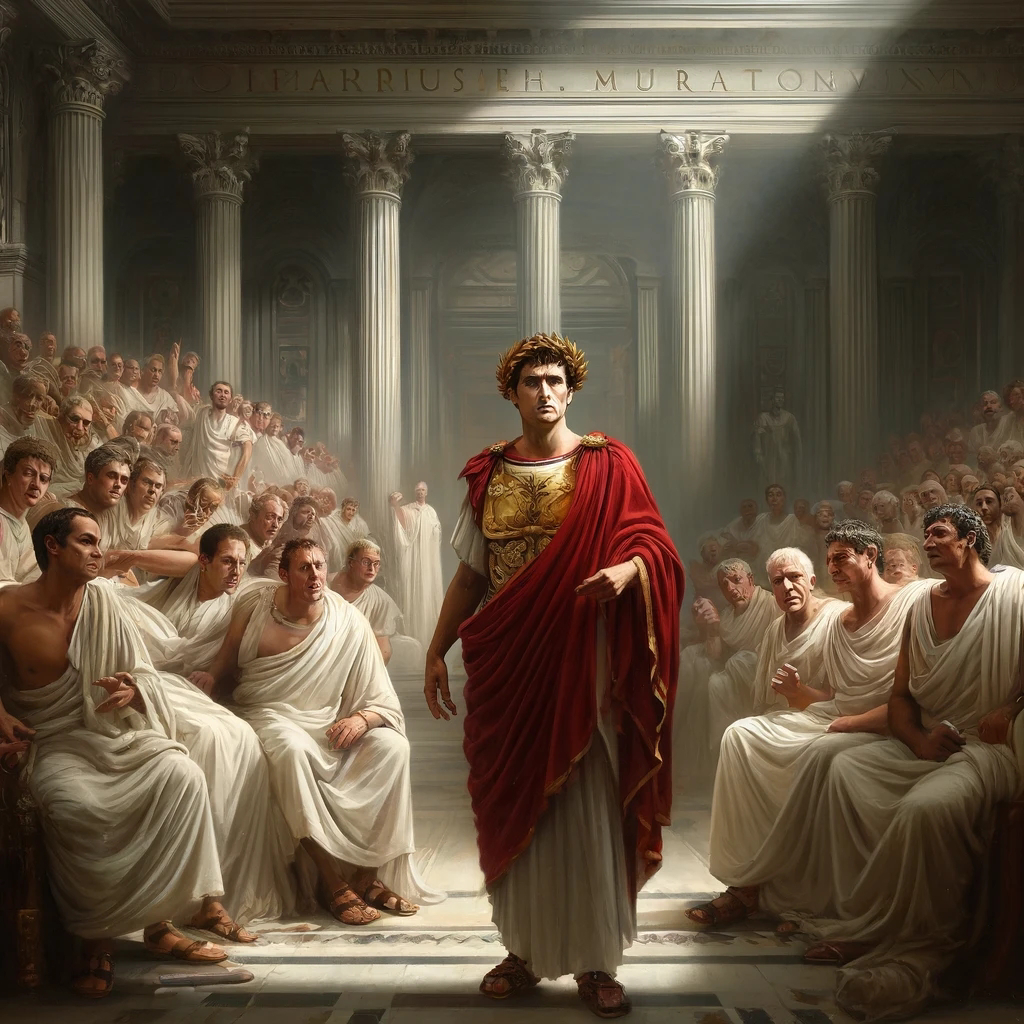Julius Caesar—his name alone evokes images of power, ambition, betrayal, and the birth of an empire. He wasn’t just a military genius; he was a political architect who laid the foundation for Rome’s transition from Republic to Empire. His life was a saga of victories, defeats, alliances, and assassinations. But beyond the drama, what made him one of the most influential figures in history? Let’s strip away the myth and look at the man himself.
The Making of a Roman Titan
Caesar wasn’t born into power, but he wasn’t exactly a nobody either. Born in 100 BCE into the patrician gens Julia, his family had noble lineage but lacked serious political influence. Rome at the time was a volatile, cutthroat republic dominated by a web of aristocratic families constantly jockeying for control.
His early years were shaped by crisis. The Roman Republic was on the brink—corruption, civil strife, and economic instability were tearing it apart. Enter Caesar: a young man with charm, intelligence, and, most importantly, ambition.
Caesar and the Civil Wars: A Baptism by Fire
His early political career saw him aligning with the populist faction, opposing the conservative Senate elite (the Optimates). He rubbed elbows with some of the most powerful men of his time, including Marius and later Pompey.
But it was Sulla, Rome’s dictator at the time, who nearly cut his story short. Sulla, suspicious of Caesar’s populist leanings, ordered him to divorce his wife, Cornelia. Caesar refused. That defiance nearly cost him his life, forcing him into exile. He returned years later with a newfound understanding: Rome was a place where survival required both strategy and ruthlessness.
The Triumvirate: A Power Play
By 60 BCE, Caesar had clawed his way into the political elite. But Rome wasn’t a one-man show. He needed allies. So, he formed the First Triumvirate—a political alliance with Pompey the Great, Rome’s most successful general, and Crassus, the wealthiest man in Rome.
This wasn’t an idealistic partnership. It was pure pragmatism. Pompey wanted land for his veterans, Crassus wanted financial policies to benefit his business interests, and Caesar needed their backing to secure his own power. The deal was sealed. For a while, it worked.
The Gallic Wars: Making a Legend
Caesar’s real rise to greatness came not in Rome, but on the battlefield. In 58 BCE, he embarked on a brutal conquest of Gaul (modern France and Belgium). Over nearly a decade, he crushed Gallic resistance, expanded Rome’s borders, and wrote about it in his famous Commentarii de Bello Gallico (Commentaries on the Gallic War).
His victories weren’t just military—they were a masterclass in propaganda. Through his writings, he controlled the narrative. He wasn’t just fighting wars; he was “defending Rome” from barbarian threats. The Senate may have feared him, but the people loved him.
By 50 BCE, he wasn’t just a general; he was a living legend.
Crossing the Rubicon: A Point of No Return
Then came the moment that changed history. The Senate, growing wary of Caesar’s power, ordered him to disband his army. He had a choice: return to Rome as a private citizen (and likely be prosecuted) or defy the Senate.
He chose defiance.
In 49 BCE, Caesar crossed the Rubicon River with his army—an act of war against Rome itself. “Alea iacta est” (“The die is cast”), he supposedly said. This single decision sparked a civil war between Caesar and Pompey.
Dictatorship and Reform: The Death of the Republic?
Caesar won. Pompey fled to Egypt and was assassinated. By 46 BCE, Caesar was the uncontested ruler of Rome.
But what kind of ruler was he?
Unlike previous dictators who used power for vengeance, Caesar introduced sweeping reforms. He reorganized the calendar (introducing the Julian calendar), expanded citizenship, relieved debt, and centralized the government. He even forgave many of his former enemies.
Yet, his growing power alarmed the Senate. In 44 BCE, he took the title Dictator Perpetuo—dictator for life. This was too much for the old guard.
The Ides of March: Assassination and Aftermath
On March 15, 44 BCE, a group of senators, led by Brutus and Cassius, assassinated him in the Senate chamber. They believed they were saving the Republic.
They were wrong.
His death didn’t restore the Republic. Instead, it triggered another civil war. Eventually, his adopted heir Octavian (later Augustus) took control, becoming the first emperor of Rome.
Caesar’s Legacy: More Than a Man
Was Caesar a tyrant or a visionary? It depends on whom you ask.
- To the Senate, he was a dictator who threatened Rome’s traditional institutions.
- To the people, he was a leader who reformed Rome and gave them a voice.
- To history, he was the catalyst that ended the Republic and birthed the Empire.
His influence extends beyond Rome. His name became synonymous with power—hence the titles Kaiser in Germany and Tsar in Russia.
Julius Caesar wasn’t just a man. He was an idea. And ideas don’t die.




